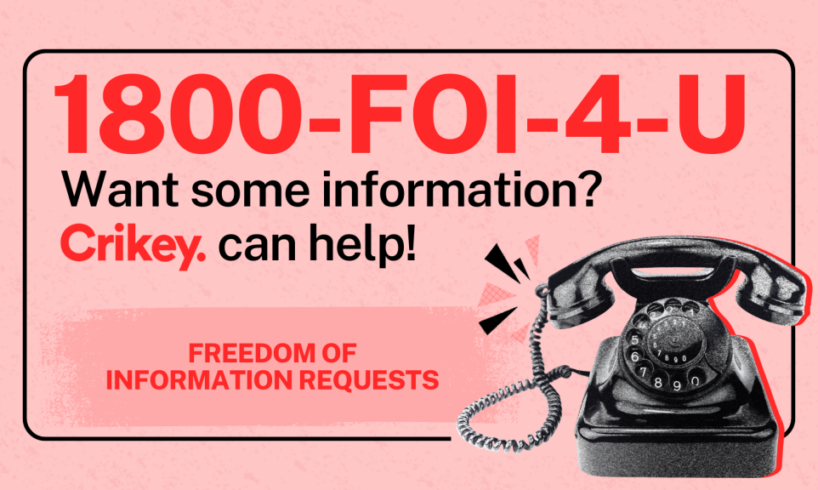
Anthony Albanese is trying to make it harder to hold him accountable.
A term after being swept into office in an election defined by the public’s desire for more integrity and transparency, and following an emphatic election victory that left its opposition cowed, the government has turned to neuter its remaining opponents: citizens, the media, advocacy groups — anyone who dares to hold it accountable.
This is the effect of proposed reforms to Australia’s already weak freedom of information (FOI) laws, which would, if passed, make requests for government information costlier, weaker and more restricted.
Attorney-General Michelle Rowland has said the current laws are “broken” and wasteful. Spam, AI bots and “foreign agents or actors” are a problem, and changing the laws would allow the government to “prioritise genuine FOI requests”.
Crikey agrees! Our FOI system is pathetic by international standards. Our 2023 series Redacted examined how the existing framework is broken, how FOIs are delayed and knocked back for the most inane reasons, and how the public, non-government MPs and journalists have to fight to just find out what their government is doing and why.
Independent. Irreverent. In your inbox
Get the headlines they don’t want you to read. Sign up to Crikey’s free newsletters for fearless reporting, sharp analysis, and a touch of chaos
By continuing, you agree to our Terms & Conditions and Privacy Policy.
So, the government has moved to increase the staffing for freedom of information requests and proposed some minor changes that will allow it to ignore vexatious reque— wait a second.
What the government actually wants to do is exempt more documents from public scrutiny, to charge for every single request for non-personal documents, and to reject anonymous requests or any request that might take more than 40 hours (nevermind that those requests are typically charged a fee for now anyway).
At a moment when faith in government and other institutions is in free fall, this government is doubling down on secrecy.
With the bill going through the committee process before being brought before parliament, there’s a brief window to take advantage of the laws as they are. So let’s use it and show the government just how important the system is to us.
Crikey is calling on you to file freedom of information requests
Is there anything about the government that you want to know? Now’s your chance. File them like there’s no tomorrow (because there might not be).
You could find out what public servants were saying when they were drafting a new law. Minister’s calendars? Of course, you can FOI that. A list of websites visited on department computers? FOI will tell you. Air traffic control audio? You guessed it — FOI. Think about almost any document held by a government body. It’s potentially up for grabs, if you know how to ask.
We’re also going to help you out. For the next few weeks, Crikey is running a personal freedom of information concierge service called FOI-4-U where we will turn YOUR idea into a request.
All you have to do is fill out this form with a few of your details and your idea, and we will do all the work. Our team of hardened FOI veterans will whip it into shape, send it off, deal with the department requests, and share with you whatever we get back. All you have to do is get them in by September 26.
For all its flaws, Australia’s FOI system has played a crucial role in revealing exactly who governments really are. In its attempt to kneecap the system, this government has revealed that, despite its promise to be open and serve the people, it really wants to be the opposite. It’s time to see what else we can reveal.





